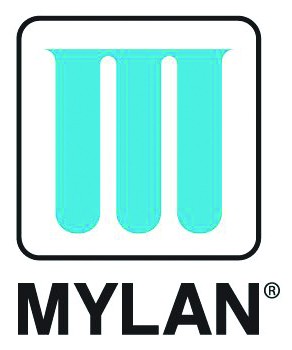MORGANTOWN — Various multi-state lawsuits filed against 18 generic drug makers, including Mylan, moved another step forward in June as the combined plaintiffs filed a consolidated amended complaint wrapping in and updating all the drug-pricing allegations they’ve previously discussed in separate suits.
They allege that the drug makers conspired to allot market share, fix and raise prices for the drugs.
The consolidated complaint is filed in the U.S. District Court for the Eastern District of Pennsylvania. The plaintiffs are 47 states, including West Virginia, along with the District of Columbia and Puerto Rico.
West Virginia first became involved last July, joining with three other states and D.C. to sue Mylan and five other drug makers regarding two of the 15 medications named in the new complaint.
Along with the drug makers, two company executives are singled out for their alleged roles in the alleged conspiracies: Rajiv Malik, president of Mylan’s parent company, Mylan NV, and Satish Mehta, CEO of defendant Emcure and its subsidiary Heritage.
As background, the plaintiffs briefly discuss the role the 1984 Hatch-Waxman Act is supposed to play in the pharmaceutical business. To encourage innovation, it gives branded drug makers longer periods of market exclusivity to cover their research and development costs.
To encourage competition, the act expedites the approval process for generics once the brand patent expires. Since passage, prescriptions for generics climbed from 20 percent of all prescriptions filled to nearly 90 percent.
The way the system is supposed to work is that once the generic market opens, the first generic’s price is slightly lower than the brand. When the second comes in, prices fall to half of the brand. As competition grows, prices for generics can be 20 percent or less of the branded drugs.
But, the complaint says, “at some point, that price dynamic changed for many generic drugs. Prices for dozens of generics have risen — while some have skyrocketed, without explanation.”
While the drug makers attribute rising prices to various market forces, the complaint says, “the reason underlying many of these price increases is much more straightforward, and sinister — illegal collusion among generic drug manufacturers.”
Senior leaders of the various companies meet regularly at trade shows, conferences and other events. They communicate in person and by phone and other means to avoid a paper trail to allot market share and either fix or raise prices.
As an example, the complaint spends eight pages detailing how Mylan and Heritage allegedly conspired to avoid competing for market share and thereby maintain a higher price for Doxy DR, an acne medication. The negotiations included meetings, phone calls and emails between Malik and Heritage officials.
The complaint lists 18 counts regarding various conspiracies to allocate market share and fix or raise prices. All but one wrap in all the defendant companies under “joint and several liability,” but single out certain key drug makers. Mylan is singled out along with other firms in four of them.
The remaining count specifies Malik and Nehta regarding Doxy DR. West Virginia is among the 38 states alleging this charge.
In addition, the individual plaintiff states list supplemental claims in a 19th count. West Virginia specifies that it is not seeking any reimbursement for federal Medicaid funds that may have been misspent.
The plaintiffs note that this complaint is not the final word. They are still investigating and may uncover more drug makers and more drugs involved, “and will likely bring additional actions based on those conspiracies at the appropriate time.”
The plaintiffs are seeking a ruling that the defendants violated federal and state antitrust and consumer protection laws, and seeking a permanent injunction barring their illegal conduct and remedying the anticompetitive effects of their actions. They also want “disgorgement of the defendants ill-gotten gains” and various damages and civil penalties.
Mylan previously issued this statement regarding the amended complaint: “We have been investigating these allegations thoroughly and have found no evidence of price fixing on the part of Mylan or its employees. Our review of the Connecticut Attorney General’s press release [of December 2016] underpinning the complaint does not change our views.
“We have asked the various attorneys general leading this case to share with us what information they believe supports these new allegations and, to date, they have not done so. Mylan has deep faith in the integrity of its president, Rajiv Malik, and stands behind him fully. Mylan and Rajiv Malik both intend to defend this case vigorously, and we look forward to the opportunity to present a full defense.
“Mylan takes its legal obligations seriously and operates with the highest levels of integrity and character. Mylan expects to have no further comment while the matter is pending.”
Curtis Johnson, spokesman for West Virginia’s attorney general, said, “We are actively pursuing this matter to ensure the state’s antitrust laws are enforced. We remain closely engaged as the case moves forward.”
Follow David Beard on Twitter @dbeardtdp. Email dbeard@dominionpost.com.





